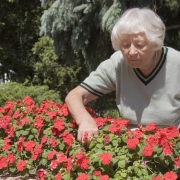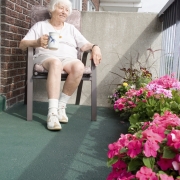Can a Person With Dementia Live in Assisted Living?
Dementia is silently taking away people’s memory, thinking, and ability to perform daily activities for many years. Today, at least 50 million people suffer from this debilitating syndrome with 10 new cases added to the statistic every year.
The sad truth is that patients suffering from dementia will need specialized care for the rest of their lives and especially as their condition progresses.
If you already feel overwhelmed with caring for a loved one with dementia, you may be starting to look at options for memory care including memory assisted living. But can this facility accept patients with dementia?
Defining assisted living residences
A memory assisted living facility offers care for individuals in the early stages of dementia and Alzheimer’s disease. Most of these patients need intensive support for their Instrumental Activities of Daily Living (IADLs) to make sure they enjoy a good quality of life.
Some individuals with dementia also need help with Activities of Daily Living (ADLs).
In memory assisted living, patients can either live on their own or in a shared apartment and they will have 24-hour access to a staff who can assist them with their needs. This type of facility is ideal for patients who can still live independently but require assistance mostly with ADLs like:
- Toilet use and cleaning oneself after
- Bathing
- Control of urine and bowels
- Moving
- Eating
- Grooming
Other residential care options for dementia patients
While assisted living facilities are good for independent patients, there may come a time when they would need more specialized care in a memory care unit. This facility is ideal for individuals who need skilled care and supervision, especially those who are in the advanced stages of dementia and Alzheimer’s disease.
Also called Special Care Units (SCUs), these units could be a separate residence or a part of an existing memory assisted living facility or nursing home and they can offer both separate and shared living spaces.
Memory care units have the same services as assisted living facilities. The only difference is the level of supervision and the additional activities offered by staff to help with stimulating the patient’s memory to hopefully slow down the progression of dementia.
In some instances, a patient may need to be transferred to a skilled nursing facility where extensive medical care is provided. Nursing homes are especially recommended for patients in the later stages of their condition or those who already have serious complications from the disease.
If your loved one already has a tendency to wander off, if he poses a threat to himself or others, if he has difficulties to keep himself healthy and properly hydrated or if he is no longer able to perform even the simplest activities of daily living, it might be time to move him to a nursing facility.
The bottomline
The decision to move a loved one to memory assisted living is not easy for any family. But if it means that you’ll be able to give your loved one the best quality of life while battling dementia and Alzheimer’s disease, then it’s definitely a wise decision.
Richmont Senior Living is proud to serve Ashland, NE and the surrounding cities: Memphis, Springfield, South Bend, Greenwood, Murdock, Waverly, Murdock, Ithaca, and Chalco












